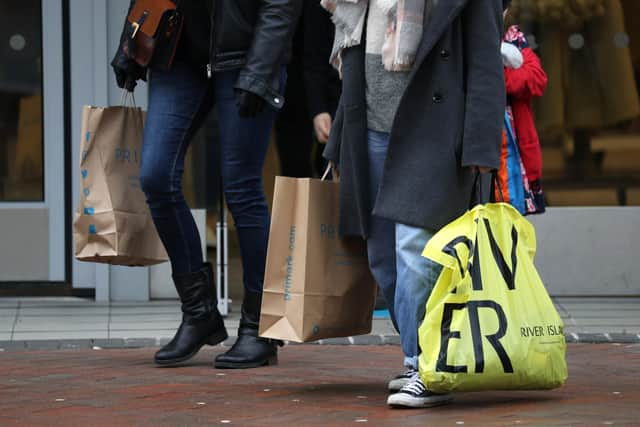GDP latest: UK recession fears remain despite August rebound in output
Gross domestic product (GDP) - total economic output - increased by 0.2 per cent during August, according to the latest figures from the Office for National Statistics, which also downgraded July’s performance from a fall of 0.5 per cent to a 0.6 per cent drop. That revision was in part due to the performance of consumer-facing service businesses.
Tina McKenzie, policy chair of the Federation of Small Businesses (FSB), said the modest GDP uptick in August would come as a “relief” to many business owners, coming on the heels of the sharp drop recorded in July. But she also pointed to FSB research showing that confidence levels in some sectors - especially consumer-facing ones such as retail and hospitality - remain weak.
Advertisement
Hide AdAdvertisement
Hide Ad“The early September pause in the upward march of the [bank] base rate has given small firms a ray of hope that the margin squeeze they’re enduring may ease,” McKenzie added. “As we’ve seen in recent months, growth is volatile and fears of a recession have yet to be fully banished. If this most recent monthly [GDP] rise is to be sustained, the government will need to consider how it can promote a trading environment where small firms can flourish.”


David Bharier, head of research at the British Chambers of Commerce, said: “Our research is clear about the issues UK firms are facing - three years of economic shocks, high inflation and interest rates, skills shortages and trade barriers with the European Union. Consequently, most SMEs [small and medium-sized enterprises] report no increase in their investment plans.”
ONS director of economic statistics Darren Morgan said: “Our initial estimate suggests GDP grew a little in August, led by strong growth in services which was partially offset by falls in manufacturing and construction. Within services, education returned to normal levels, while computer programmers and engineers both had strong months.”
Not all parts of the service sector had a good month, however. The arts, entertainment and recreation sector shrank by 7.4 per cent. The UK’s economy is now 2.1 per cent larger overall than it was in February 2020, before the pandemic hit.
Thomas Pugh, economist at audit, tax and consulting firm RSM UK, said the rebound in the economy in August should allay fears that the UK is slipping into a recession. However, he warned that underlying growth was probably still flatlining.
“That points to the monetary policy committee (MPC) keeping interest rates on hold in November,” he added. “Indeed, we expect the economy to continue to stagnate for the next year but there is a significant risk of a recession towards the end of this year or early 2024.”
Jonathan Moyes, head of investment research at Wealth Club, added: “Whilst the growth may be nothing to write home about, the economy does appear to be shaking off fears of a looming recession. Forecasters have long predicted a recession that has yet to arrive. The economy may continue to find a way to muddle through.”
Comments
Want to join the conversation? Please or to comment on this article.